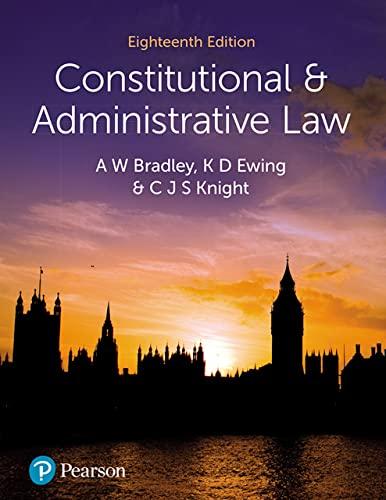Question
In the city of Bolzano (in Northern Italy), homeowners are responsible for cleaning up the sidewalk in front of their house, and they can be
In the city of Bolzano (in Northern Italy), homeowners are responsible for cleaning up the sidewalk in front of their house, and they can be fined if they do not.
A and B are next-door neighbors. They are the same age, equally fit, have equal-sized side- walks and value their time about the same.
However, after each snowfall, B clears the sidewalk in front of his house with a shovel, and A clears the sidewalk in front of his house with a brand new, extremely powerful snowblower. Clearing the sidewalk takes A five minutes, while it takes B an hour. A will not lend B his snowblower since it takes a while to learn how to use it properly, and he is afraid that B will break it. Define the Normative Coase view of how property law should be designed. Taking this view, who would end up clearing B's sidewalk and why? Consider the two rules - the old rule where each homeowner is responsible for his part of the sidewalk, and the new rule where the person with the best snowblower is responsible for the whole block. In the short run - say, for the first week after the neighborhood association meeting - which rule (if either) would be more efficient if transaction costs are low? What if transaction costs are high? In the longer term - say, over the course of years - which rule would lead to people owning more advanced snow clearing equipment? Which rule would be more efficient in the long run?
Step by Step Solution
There are 3 Steps involved in it
Step: 1

Get Instant Access to Expert-Tailored Solutions
See step-by-step solutions with expert insights and AI powered tools for academic success
Step: 2

Step: 3

Ace Your Homework with AI
Get the answers you need in no time with our AI-driven, step-by-step assistance
Get Started


